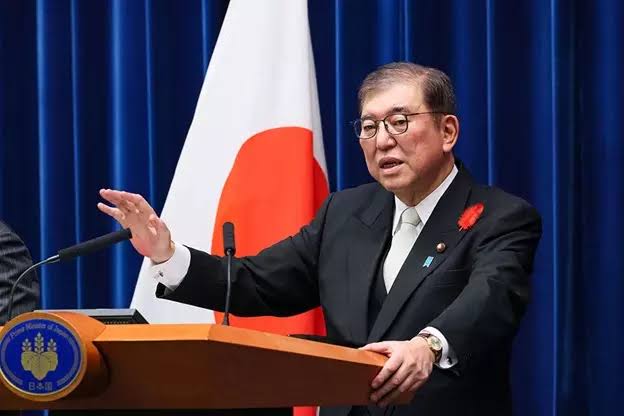
Samuel Omang
Japan’s Prime Minister Shigeru Ishiba announced his resignation on Sunday, bowing to mounting pressure from within his Liberal Democratic Party (LDP) following a historic defeat in the country’s July parliamentary elections.
Ishiba, 68, said he would step down as both prime minister and leader of the ruling party, ending a one-year tenure marked by political turbulence and deep divisions within the LDP. He explained that while he had initially resisted calls to quit, the conclusion of tariff negotiations with the United States created “the right moment” to hand over power.
“Who would seriously negotiate with a government whose leader says he is stepping down?” Ishiba asked at a news conference in Tokyo. “Having reached a milestone in U.S. tariff negotiations, I decided now is the time to make way for a successor.”
His announcement came a day before the LDP was scheduled to vote on whether to hold an early leadership contest — a step widely seen as a no-confidence measure. Ishiba said he chose to resign to prevent a damaging split in the party.
The July defeat, in which the LDP-led coalition failed to win a majority in the 248-seat upper house, dealt a serious blow to Ishiba’s authority. It followed the coalition’s earlier loss of its lower house majority in October 2024, just weeks after Ishiba assumed office.
Despite the setbacks, Ishiba’s personal approval ratings had risen in recent months, with some voters viewing him as a stabilizing figure amid economic and security challenges. However, conservative rivals within the LDP, including former Finance Minister Taro Aso, intensified pressure for a leadership change.
Possible successors include Agriculture Minister Shinjiro Koizumi, ultra-conservative former economic security minister Sanae Takaichi, and Chief Cabinet Secretary Yoshimasa Hayashi, a moderate seen as a close ally of former Prime Minister Fumio Kishida.
Ishiba said he would not contest the coming leadership race but urged his successor to pursue policies he had championed, including wage reforms, agricultural modernization, and strengthened national security.
“I regret that I could not meet voters’ expectations for change,” he said. “As a result, I failed to go my own way, and I wonder how I could have done better.”
The LDP leadership vote is expected in October, with Ishiba remaining in office until parliament formally endorses his replacement.
